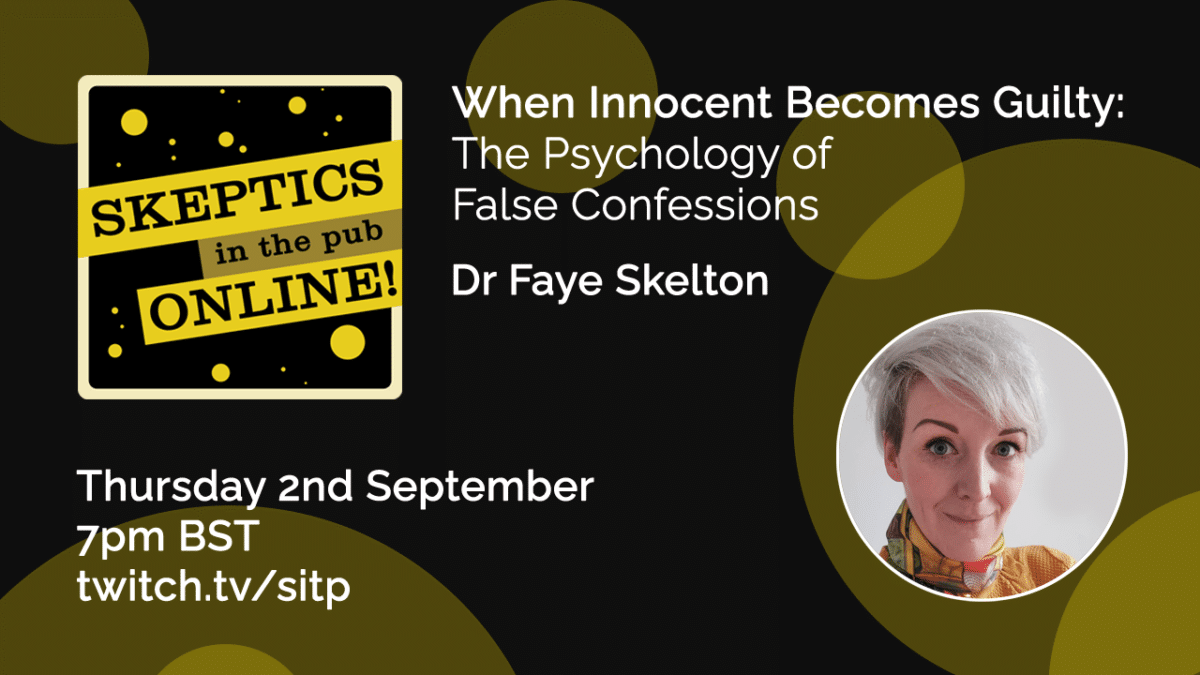It is difficult to imagine admitting to something that you didn’t do, especially something so serious as committing murder. There are however numerous documented cases of innocent people confessing to crimes they didn’t commit, and suffering severe consequences. Aside from those who voluntarily confess, others are vulnerable to persuasive interviewing tactics, and some even come to believe that they are guilty. From personality factors to threats and torture, join Faye to explore the psychology of false confessions and what can be done to prevent them.
Dr Faye Skelton is a lecturer in Cognitive Psychology at Edinburgh Napier University, where she is programme leader of the MSc Applied Criminology and Forensic Psychology programme. She is interested in applied aspects of memory and face recognition, and miscarriages of justice. As a lecturer and public speaker, she applies her research to cognitive, cultural and ethical aspects of the legal system. This includes eyewitness testimony, police facial composites, witness and suspect interviews, false confessions, and detection of deception. She is currently researching experiences of miscarriages of justice in collaboration with MOJO (the Miscarriages of Justice Organisation) and has written and performed several shows for the Edinburgh Fringe Festival including Fitness to Witness, Suspect Confessions, and Pants on Fire.

